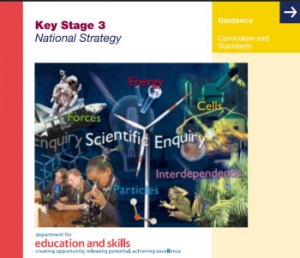Types of Model in Science
About. Why is using a range of models effective? When should different models be used? Here is an opportunity for teachers to discuss the use of models to develop understanding. A 6-page document discusses using models at different levels through key stage 3 science. Models for the topic of 'light' are considered in more detail. Extracted from a larger DfES document.
Pedagogical content. This resource provides some examples of the types of models(tool) used in science teaching, their roles, and importance for teaching. (edit)
| Resource details | |
| Title | Different types of model in science |
| Topic | [[Topics/Models|Models]] |
| Teaching approach | [[Teaching Approaches/|]] |
| Learning Objectives | In working through this you should explore ways to use models in science lessons, and the practicalities of setting up situations to use them. You should discuss why some models may be more successful than others. |
| Format / structure | .doc |
| Subject | [[Resources/Teacher Education|Teacher Education]], [[Resources/Science|Science]] |
| Age of students / grade | [[Resources/Age 11-14|Age 11-14]], [[Resources/Secondary|Secondary]], [[Resources/Higher|Higher]], [[Resources/KS3|KS3]]
|
| Related ORBIT Wiki Resources | See other DfEScience(i) resources |
| Files and resources to view and download | File:Types of Model in Science.doc available in WikiText form here
|



